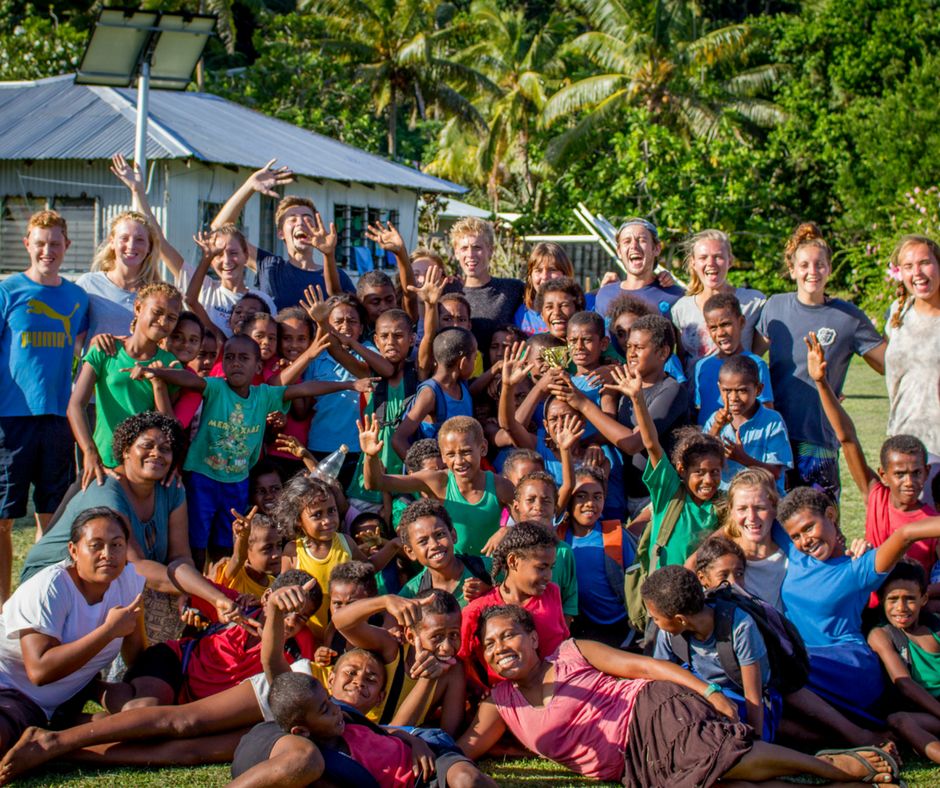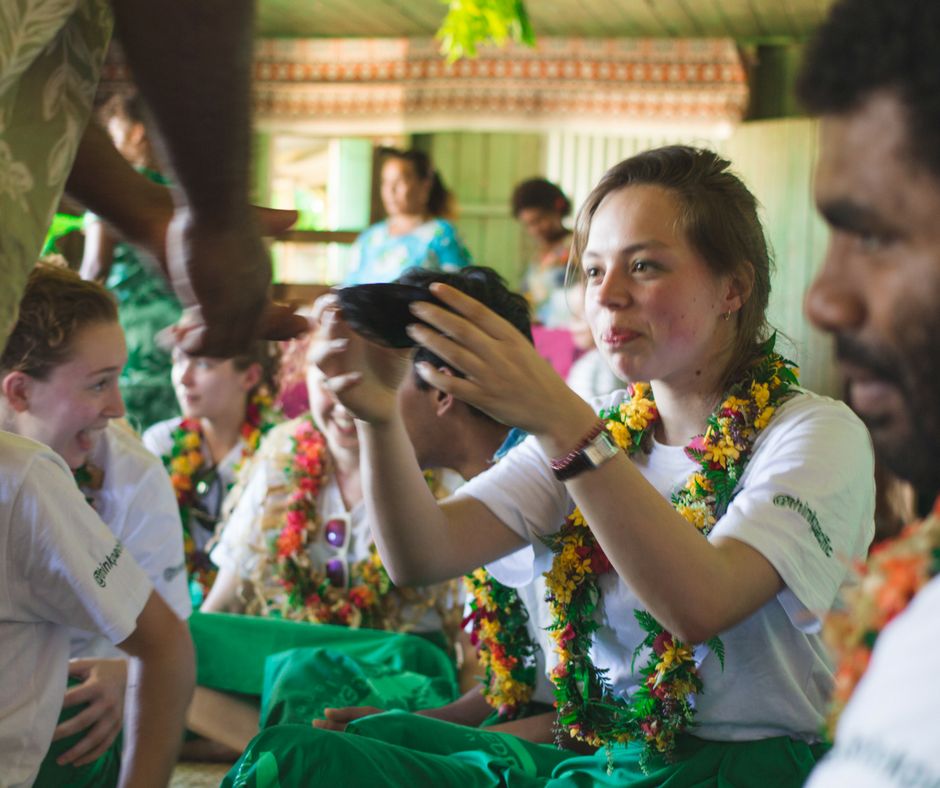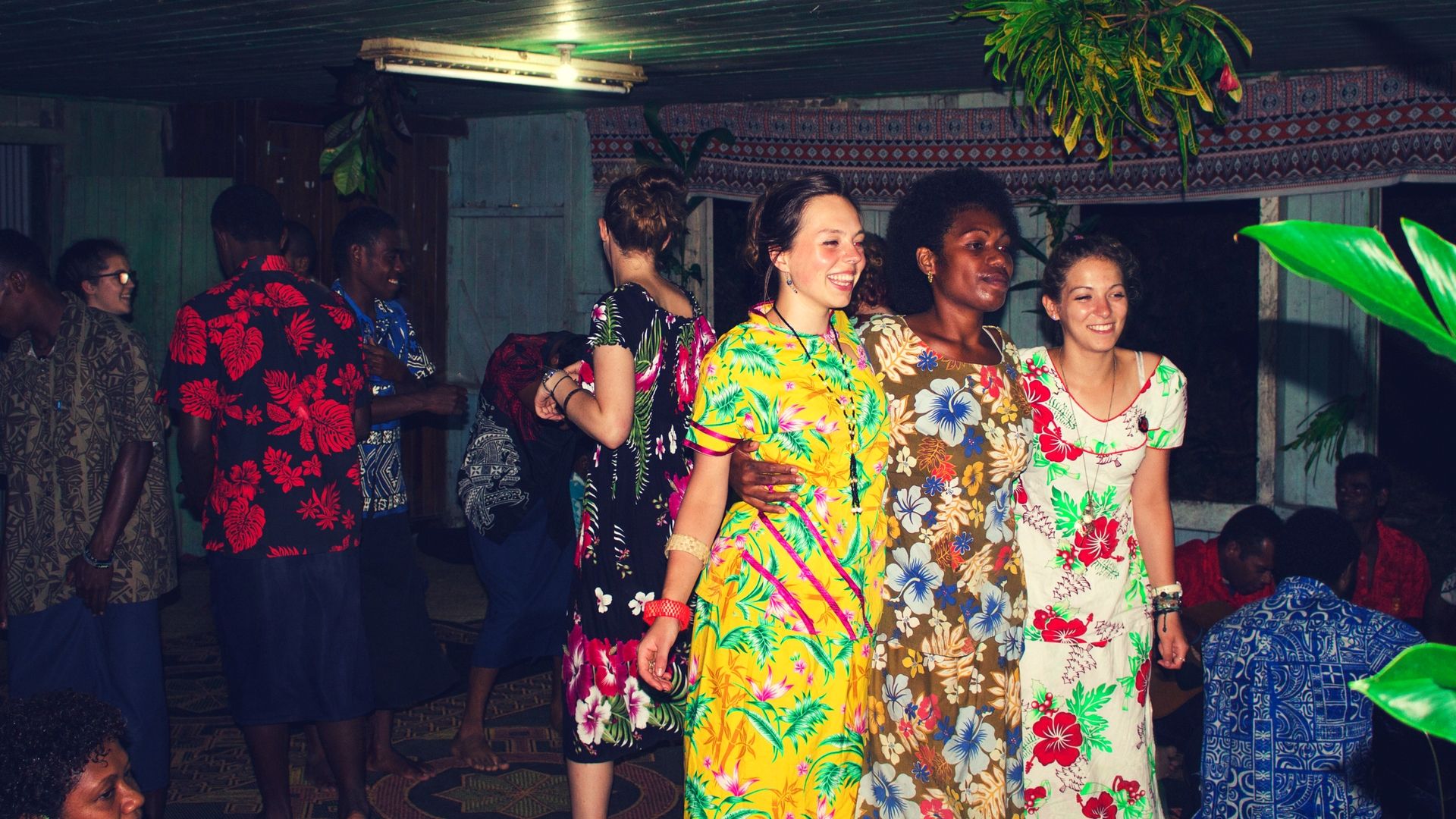
There are some things that only people who have lived in a Fijian village will understand. A Fijian village is one of the most special places in the world and a must for anyone serious about travel and adventure. It also provides unique experiences and memories that you won’t find anywhere else.
Here at Think Pacific, we believe that the best way to volunteer in Fiji is to immerse yourself into a real Fijian village. Travel should be about interacting and connecting with local people and becoming a part of their community. This is why our projects all involve living with a Fijian family in a Fijian village.
So, what can someone expect when they join a volunteering project into a Fijian village?
1. Rugby is more than a sport in Fiji, it’s a religion
Rugby is taken very seriously in Fiji. Rugby union, rugby league, rugby sevens, it’s all considered a vital part of everyday life.
It doesn’t matter if it’s rain or shine, somewhere in a village, a Fijian will be throwing around a rugby ball. It is the lifeblood of Fijian sport and all Fijians will cheer on village games and tournaments. Volunteers lucky enough to join in with a real Fijian rugby game in a village are in for a treat. The Fijians are very gifted rugby players though so if you fancy playing, make sure you bring your A-game!
2. Fijian kids are too cute…but be prepared for carnage in kindergarten
Fijian kids are seriously cute. They are kind, well behaved and will welcome you with open arms. However, when all the kids come together for kindergarten or school, be prepared!
No Think Pacific expedition has escaped the chaos that a group of 10 Fijian kids can cause in kindergarten. Rule #1 of teaching kindergarten in Fiji is to not underestimate the energy and liveliness of these Fijian kids.

Our volunteers often look like they’ve come out of a battle field when they leave kindergarten. Painted faces, stationary everywhere, food stuck to the roof, it can be quite the scene. However, you can be rested assured that they’ll always be lots of laughs and smiles throughout the chaos.
Kindergarten isn’t for the fainthearted but it is likely to create some of your favourite memories in Fiji.
3. When Fijians say they like food, they aren’t lying
It won’t take long for you to realise that Fijian’s take their food very seriously. The expression “kana” literally means “eat” and you’ll hear it in pretty much every other sentence.
If you walk around a Fijian village, expect to get invited in to random homes that are offering you food. You could probably spend the whole day just eating food in different homes.
Fijian food includes lots of delicious meals, made only with fresh ingredients from the land and sea.
4. That feeling when someone says “hightide” during a yaqona/grog session
Yaqona, also known as grog or kava, is a drink that carries cultural tradition and importance in Fiji. It is a drink that is consumed a lot in Fijian villages and our guided experiences provide plenty of opportunities to get up and close with this ceremonial drink.
This is a very unique experience and one that’ll bring you closer to the Fijian culture and tribal roots.
The drink is quite an acquired taste and often is preferred in smaller quantities. However, during a party or celebration, the Fijians can get carried away, and you’ll start hearing the phrase “hightide” which refers to the bilo (the coconut shell the drink is served in), being full to the edge.
It turns out you can get very large coconut shells and this “hightide” request can result in a serious amount of yoqona coming your way! It’s always fun to give hightide servings a go, but sometimes it’s better off leaving that to the Fijians!

5. That one guy in a village who takes hop hop to the next level
Hop hop is the Fijian phrase used to describe their dancing during celebrations and parties. It goes hand in hand with yaqona. The whole community will often get on their feet and dance the night away. It really is a truly remarkable activity to be a part of.
During yaqona evenings, people will sit on the floor and then if the village band starts playing a song, people will get up a dance.

Hop hop encourages everyone to bust some shapes and show off their dancing skills. It usually doesn’t take long before one or two Fijians take centre stage as the village’s keenest hop hoppers.
They’ll be the first to get start dancing to each song and they’ll be the ones who never want it to finish.
6. When you can’t find your flip flops, kere kere is the answer
Kere kere is a beautiful expression that highlights the togetherness and friendliness of Fijians. They regard all their possessions as shared for the community. People share everything from clothes and equipment to food and shelter.
It showcases the community spirit of a Fijian village that is often so rare to those of us who live in Western countries.
This does mean though, that if you live in a Fijian village, you need to adopt this way of life. Expect Fijians to offer you everything they own, but also expect some Fijian feet to slip into your flip flops if you leave them lying around. They won’t be stolen, simply borrowed by another member of the village until you need them back. In the meantime, you can kere kere some other flip flops lying around.
7. Waking up surrounded by your adopted family and realising you really are experiencing something very special
Ok, that might sound a bit cheesy – but it’s still true and still something all our volunteers who have lived in a Fijian village would agree with. It’s very hard to put down into words the feeling that you get when you live with a Fijian family and experience everything they do as part of their family. Through the good times or the challenging moments, your time in Fiji is shaped by this caring family who will help give you memories and experiences that regular holidays or trips simply can’t.
If you talk to any of our previous volunteers, it is always the Fijian families and communities that leave the lasting impressions on them. These communities are very special and it’s why we only offer projects to Fiji.
For more info about how you can get involved, why not download our brochure and discover what else you can expect on a Think Pacific expedition.




